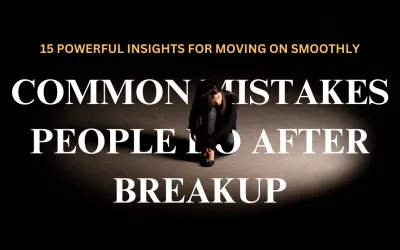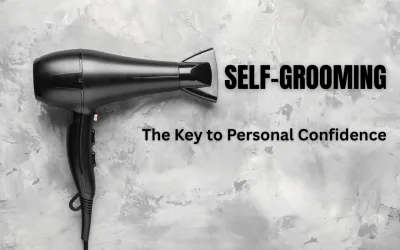“Maybe they aren’t really rude people; maybe they are stressed people who are being rude.”
You are too aware of the abundance of nasty people around you if you have driven during rush-hour traffic or navigated a crowded supermarket. It doesn’t matter if the behaviour is dismissive or unpleasant, but rudeness is prevalent. This pessimism from sour individuals tends to rub off on us all too frequently.
Although you do not influence other people’s actions, you would prefer not to be offended by their rudeness. What do you do, then?
- Acknowledge that being impolite is nothing new
Rudeness appears to be a trait shared by all people. Since the dawn of time, we have been lamenting the behaviour of young people. Plato is renowned for his rants on the subject. Many people find it easy to develop the habit of being rude. We frequently just ignore or undervalue the significance of being kind, sympathetic, and compassionate to others.
Rudeness is contagious because it often leads to further rudeness. However, if we realise how these bad habits affect our pleasure, productivity, and health, we can realise how crucial it is to quit them. Even if being rude is nothing new, we don’t have to keep up the vicious cycle of malice and rage.
2. Halt the impolite cycle
If you let it, rudeness will spread like a sickness. A nasty deed can quickly snowball into further impolite acts, inciting sour moods and bad behaviour in its wake.
This can be easily explained. You’re driving to work when a harsh driver cuts you off, making you angry and upset. If one inevitably finds oneself snapping at coworkers without any justification, you are taking those bad sentiments out on your coworkers. Your coworkers get irritated and nasty towards other people as a result. and so forth.
You can put an end to unfavourable circumstances and break the cycle of rudeness. You can diffuse an argument with a little sympathy.
3. Avoid taking insults personally
Stop taking an unpleasant person’s behaviour personally to break the cycle of rudeness. Everybody experiences awful days where it feels like the world is against us. It’s all too easy to vent your frustrations on others, which just means on those who are closest to you.
Realising that the offensive and nasty individual could just be having a terrible day might help put things in perspective because this occurs to all of us. They could have been coping with a challenging situation when you unintentionally walked into their path of fire. By refraining from reacting negatively to rudeness with your negativity, you may frequently end the cycle of rudeness.
4. React politely to disrespect
Avoid responding to someone unpleasant by saying even more harmful things. Staying amiable and upbeat is one of the best methods to stop unpleasant and destructive behaviour. Giving provides the opportunity for the other person to cool off and modify their behaviour to fit yours. Rudeness can be successfully combated by being kind.
It may be quite challenging to be polite to someone who is rude or disrespectful to others. But you may encourage them to do so by modelling composure and good manners. If this doesn’t work, you may be proud that you didn’t compromise your principles or introduce your nasty behaviour into the equation. Instead, you stayed true to your calmness.
5. Use humour to diffuse a challenging situation
Someone who is unkind and challenging may make everyone around them feel tense and anxious. Keep in mind that they are likely acting rudely because they are angry or disturbed about anything they are experiencing. The tension may be broken and diverted through humour, allowing everyone to laugh it off.
This can be accomplished by finding a humorous way to describe a typical circumstance or by making jokes about a familiar event. Humour that makes fun of oneself may also be empowering. To help everyone press the reset button and start over on a brighter note, try to find a way to inject some humour if somebody is feeling off.
5. Reprimand the offender for their actions
Simply calling somebody out on their behaviour and requesting that they stop is another way to halt the cycle of rudeness. You need to take active action if someone is constantly being nasty to you but you are unable to move away from them. You are not required to put up with anyone’s constant mistreatment. Never allow yourself to be treated disrespectfully by anyone.
Talk to someone about the situation. Do they understand how their actions have hurt you? Perhaps the offender is unaware of how impolitely they are behaving. Keeping the other person aware gives them a chance to express regret and make an effort to be more considerate.
6. Don’t go further
The initial reaction could be to strike back when someone irritates you. But keep in mind that you are always (and alone) in charge of yourself. Decide not to succumb to drama. You are responsible for your actions regardless of how others behave, and they are equally responsible for theirs.
Hold your composure. If you’ve been upset by someone, take a big breath and allow yourself some time to collect yourself. Keep in mind that you are not required to lower yourself to their level and that doing so would probably just make the situation worse. Retain your composure and rise above the conflict.
7. Exhibit compassion and empathy
You must attempt to comprehend the impolite person’s motivations to demonstrate empathy. Perhaps that individual is going through a trying time in their private affairs or is feeling overburdened with job commitments. They will feel more acquainted with you and less isolated in their difficulties if you can find a way to demonstrate that you are concerned about them while understanding what they are going through.
Let them know you understand if you are aware that they are going through a difficult period. Don’t criticise them for acting out or having a terrible day. You might be able to relate to them by mentioning that you’ve experienced difficult times as well.
8. Act as a good example
There are many different hidden agendas behind people’s behaviour. Recognise that some people engage in impolite behaviour to assert their authority or control. They can be attempting to incite a response and damage your reputation. Don’t give them the satisfaction of witnessing your rage.
Establishing an effective approach and addressing everyone with justice, compassion, and empathy shows others what type of attitude you value in them. It could be necessary to seek outside assistance if they are unable to reciprocate with the same degree of decency.
9. Keep away from the impolite individual
Remember that if everything else fails, it’s often best to simply leave. This individual may be just unable to treat you and others with respect and good manners, even after you’ve done everything you can to make him or her conscious of his or her conduct and try to demonstrate kindness and empathy.
You may limit the audience and number of targets that persistently disrespectful individuals have by ignoring them. The lack of a crowd will also diffuse the situation. Hopefully, it will serve as a wake-up call if people around them start giving them plenty of space. As well, regardless of whether it does or not, it will certainly make everyone else’s week brighter.








0 Comments